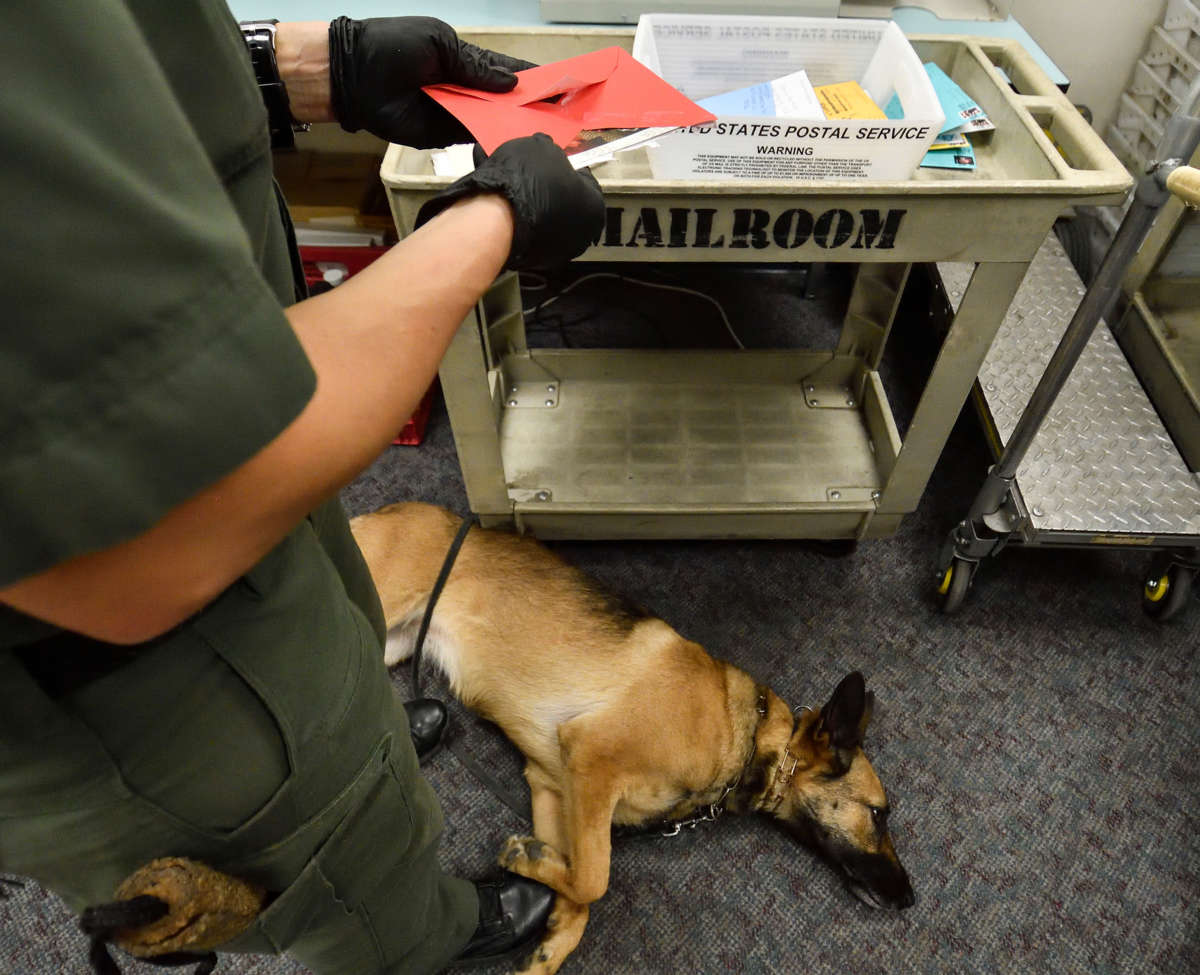Part of the Series
The Road to Abolition
Did you know that Truthout is a nonprofit and independently funded by readers like you? If you value what we do, please support our work with a donation.
For millions of incarcerated people around the country, receiving mail from our loved ones is a source of momentary joy, a tangible connection to family and friends in the form of birthday cards, baby pictures or handwritten letters bringing news from home.
On many of my worst days inside, hearing my name called out for mail has lifted my spirits; all my problems fade into the background as I tear open an envelope containing photos of the family dog.
But now I’ll never get another piece of mail again while I’m in prison.
In January, the Florida Department of Corrections (FDC) banned the 86,000 prisoners in its custody from receiving physical mail. All incoming mail (excluding legal documents) will be digitized by JPay, a for-profit contractor. Incarcerated residents will only be able to view scanned versions of our letters and photographs on tablets or at communal kiosks in cell blocks or dorms.
Over the past few years, multiple states have adopted the same restrictions — as well as the Federal Bureau of Prisons, which oversees 122 facilities — in an attempt to prevent contraband like drugs from entering correctional institutions. But according to Nazish Dholakia of the Vera Institute of Justice, out of the 3.1 million items of contraband that entered the FDC between January 2019 and April 2021, roughly just 1 percent came through the mail.
In fact, reports suggest that in most prisons and jails in the U.S., correctional officers are the primary source of drugs and other contraband, not the mail. The Justice Department identified this trend as far back as 2003.
Eliminating physical mail severs one of the only palpable ties we have with the outside world. When my father passed away unexpectedly last year, the many sympathy cards I received brought me a small measure of comfort. I would read the handwritten notes over and over with tears in my eyes. I held the last picture ever taken of my dad — a glossy 3″-by-5″ print sent by my stepmom — in my hands for hours, memorizing his features before placing it reverently in my photo album for safekeeping.
Getting mail in prison is a time-honored ritual dating back centuries. Held inside a Birmingham jail in the Jim Crow South, Martin Luther King Jr. is said to have tucked a letter from his wife into his Bible for inspiration. Oscar Wilde had an illicit pen pal. Many despondent prisoners over the years have found hope from a simple written word or a snapshot of the life they left behind.
We treasure these mementos behind bars because we have little else.
Under the new policy of digitizing mail, incarcerated people are losing the visceral experience of touching a letter or smelling perfume on an envelope, but we must also endure the technical problems associated with a nascent system.
The addition of scanning has resulted in extended wait times for mail delivery, blurry photographs and unreadable letters. Missing pages are a common occurrence, while some mail is just lost in a quagmire of inefficiency.
In the FDC, personal tablets issued by JPay frequently malfunction, and replacements can take months to arrive. Without a tablet, the only option is to view incoming mail on a communal kiosk that continually breaks. Some days the line to use a kiosk is longer than the phone line, resulting in arguments and disorder.
And still, drugs like K2, a synthetic cannabinoid, flood prisons and jails nationwide.
Texas prisons stopped in-person visits and restricted mail in 2020, but that didn’t stop drugs from entering the system. In Pennsylvania, drug positivity rates actually increased after a digital mail service was implemented, according to The Intercept’s Lauren Gill.
Prison mail has long been subject to inspection, but with for-profit companies operating virtually unregulated, new privacy issues emerge: Friends and family of the incarcerated now have their correspondence and photos saved on a database — a digital diary compiled without their consent.
In addition to storing personal information indefinitely, programs like MailGuard, created by the Florida-based company Smart Communications, have the ability to share the sender’s email and IP addresses, GPS location and home address with correctional agencies.
With no real evidence of costly digital mail services preventing the flow of contraband into prisons and jails, one has to ask about other motives.
Companies like JPay have long exploited Florida prisoners for services ranging from phone calls to canteen provisions to medical co-pays. Restricting physical mail could just be the latest ploy to extract money from our hardship.
For example, incarcerated residents in the FDC have the option of paying to print copies of our mail for $0.25 for black-white printouts and $0.50 for color photos, adding to the long list of revenue-generating schemes already thriving in the criminal legal system. Charging for printed copies of our mail is an egregious practice being utilized in many other states who have digitized mail, including California, Washington and Texas. After all, our families have already paid the postage for our mail… why should we pay again?
It’s hard for me to imagine not receiving mail anymore, and harder still to think about losing such an important lifeline to my loved ones. A strong social connection with people on the outside encourages successful reentry back into society. By restricting mail, the FDC has needlessly limited my support system in the name of “security.”
Press freedom is under attack
As Trump cracks down on political speech, independent media is increasingly necessary.
Truthout produces reporting you won’t see in the mainstream: journalism from the frontlines of global conflict, interviews with grassroots movement leaders, high-quality legal analysis and more.
Our work is possible thanks to reader support. Help Truthout catalyze change and social justice — make a tax-deductible monthly or one-time donation today.
